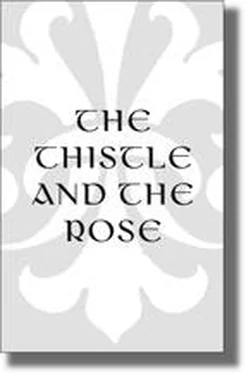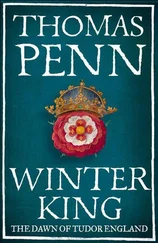Jean Plaidy - To Hold the Crown - The Story of King Henry VII and Elizabeth of York
Здесь есть возможность читать онлайн «Jean Plaidy - To Hold the Crown - The Story of King Henry VII and Elizabeth of York» весь текст электронной книги совершенно бесплатно (целиком полную версию без сокращений). В некоторых случаях можно слушать аудио, скачать через торрент в формате fb2 и присутствует краткое содержание. Жанр: Старинная литература, на русском языке. Описание произведения, (предисловие) а так же отзывы посетителей доступны на портале библиотеки ЛибКат.
- Название:To Hold the Crown: The Story of King Henry VII and Elizabeth of York
- Автор:
- Жанр:
- Год:неизвестен
- ISBN:нет данных
- Рейтинг книги:5 / 5. Голосов: 1
-
Избранное:Добавить в избранное
- Отзывы:
-
Ваша оценка:
- 100
- 1
- 2
- 3
- 4
- 5
To Hold the Crown: The Story of King Henry VII and Elizabeth of York: краткое содержание, описание и аннотация
Предлагаем к чтению аннотацию, описание, краткое содержание или предисловие (зависит от того, что написал сам автор книги «To Hold the Crown: The Story of King Henry VII and Elizabeth of York»). Если вы не нашли необходимую информацию о книге — напишите в комментариях, мы постараемся отыскать её.
To Hold the Crown: The Story of King Henry VII and Elizabeth of York — читать онлайн бесплатно полную книгу (весь текст) целиком
Ниже представлен текст книги, разбитый по страницам. Система сохранения места последней прочитанной страницы, позволяет с удобством читать онлайн бесплатно книгу «To Hold the Crown: The Story of King Henry VII and Elizabeth of York», без необходимости каждый раз заново искать на чём Вы остановились. Поставьте закладку, и сможете в любой момент перейти на страницу, на которой закончили чтение.
Интервал:
Закладка:
He must now say it is over, and prepare himself for his fate.
“Guilty of treason” was the verdict and he was condemned to the traitor’s death.

The traitor’s death! It was the most barbarous act which could befall a man. To be dragged through the streets on a hurdle, to be hanged, cut down before death put a merciful end to suffering, cut open and one’s entrails burned until one could endure no more.
Every man dreaded it. To be a traitor men needed the utmost courage and yet . . . so many of them were ready to risk this terrible death for something they believed in.
Did Stanley believe in Perkin Warbeck? Not in his heart. He knew Warbeck was another Lambert Simnel but more polished, more prepared. He had the other to draw on for a lesson.
That he, William Stanley, should have come to this was hard to believe. He had brought disgrace on his brother but the Countess would protect her husband from the King’s wrath against the family. Perhaps Henry was not the man to visit the sins of one man on another just because they happened to be brothers. Henry was a just man. He was not revengeful. He would eliminate people—coldbloodedly as some thought, but that would only be because he felt it necessary to do so. Any violent deed which he condoned would not be done in hot blood or vengeance. It would be because it was expedient to do it.
It was no use asking for clemency, for Henry would reason that it would be unwise to grant it. Sir William Stanley was a traitor and the King must give a lesson to all would-be traitors.
Henry was more concerned about Stanley than he cared to admit. There must always be men who worked against a leader, he supposed, because men were envious by nature, and if a man was up, there would always be those who wanted to bring him down, for no other reason than that he was up . . . and perhaps they thought they had more right to be where he was. That he accepted. But not the treachery of close friends—men whom he had trusted. This was the blow.
He was shut in with his melancholy. To whom could he talk of these depressions which obsessed him? Not to his mother—she was too close and she would be particularly disturbed because the criminal was her husband’s brother. No, he could not distress her more by revealing his grief to her. To Elizabeth the Queen? No. He never talked to Elizabeth. She knew him as a kind and gentle husband but he had never shared a state secret with her and he had never talked to her of the affairs of the country. Arthur was a child. He wished his children were older. How comforting it would have been to discuss this matter with a son. Arthur was grave and serious. He had high hopes of Arthur . . . but as yet a boy of eight.
The King felt desperately alone.
It was not only Sir William Stanley who had been exposed as a traitor. There were many more. It was disturbing that there should be others but Stanley was the one on whom he brooded.
Not one of them must be spared. There must be public executions. The people must be made fully aware of the dreaded fate in store for traitors.
People crowded the streets. Executions were like public holidays. Crowds massed outside Newgate to watch the prisoners brought out and taken to the place of execution. Those of higher rank were taken from the Tower but the place was of little importance to the condemned. They were all to meet the same fate.
Henry spared one or two of them at the last minute, just as they were preparing themselves for the axe. This created drama, as the King intended it should. A messenger would arrive at the last moment and there would be an announcement from the scaffold that the King had decided on a reprieve for this particular criminal because he considered he had been led astray by evil counselors. The reprieved man would go back to prison where in due course he might earn his liberty.
This made the executions almost like a play. At every one of them the people waited expectantly for an announcement. It was obvious in the faces of the condemned that they too were waiting.
There would be a hush in the crowd and a watchfulness for the messenger waving the King’s pardon. Though it came rarely the expectation was always there; and when the axe finally descended there would be a deep sigh from the crowd.
Henry decided that he could not submit Sir William Stanley to the indignity of the traitor’s death and at the last moment the sentence was changed to beheading, so on a bleak February day Sir William was brought out of the Tower to Tower Green and there in the presence of a large crowd he laid his head on the block and paid the penalty for his treachery to the King.
The city was now adorned with the heads of traitors, but the King did not want to disgrace the Stanley family in this way, so he decreed that William Stanley’s head should be buried with his body at Sion on the Thames.

Young Prince Henry, Duke of York, knew that something was happening and he was frustrated because no one told him what it was.
Margaret pretended to know but he was not sure that she did. Arthur of course knew, but would not talk of it. It was maddening.
And following so soon after his elevation particularly so, for Henry had realized during that ceremony that he was, if only a child, a very important one and he wanted everyone around him to remember it.
It was all very well for Anne Oxenbrigge to call him her baby. There were times when he wanted to be just that but even she must remember that he was also the Duke of York and although he might like to cuddle up against her warm and cozy bosom, he was still a very important boy, only slightly less so than Arthur.
“Where is Sir William Stanley?” he asked Margaret.
He had seen a great deal of Sir William before that splendid ceremony when he had been the center of attraction. He wanted Sir William to bring him some more silken garments and to arrange more pageants in his honor.
“You are not to know,” retorted Margaret. “You are too young.”
“I am the Duke of York,” he told her proudly.
“You are not four years old yet.”
“I will be in June.”
“But it is not yet June and you are only three. Fancy being only three!”
Henry was furious. He hated Margaret. If I were the King, he thought looking at her venomously through narrowed eyes . . . What would he do to Margaret? Send her to the Tower.
Arthur was kind. He asked him. His elder brother hesitated.
“It’s of no moment,” said Arthur gently. “I hear you have a new spinning top. Does it go well?”
“I whip it hard,” said Henry with satisfaction.
“You must show me.”
“First I want to know where Sir William Stanley is.”
Arthur thought: He will have to know sometime. There was no point in keeping it secret.
He said: “He is dead. His head was cut off because he was a traitor.”
Henry’s little eyes opened wide, and the color rushed into his cheeks. He was trying to visualize Sir William Stanley without his head.
“There is a wicked man on the Continent who says he is the Duke of York.”
“ I am the Duke of York.”
“Yes, this is a spurious one.”
Arthur used long words, forgetting that others couldn’t understand them, because Arthur was supposed to be very clever with his books, and Henry was not going to admit that he didn’t know what spurious was. It was clear that it was something wicked.
“What about him?” asked Henry eagerly.
“He wants to take the crown from our father.”
“Why?”
“To wear it, of course. Oh you are too young. . . .”
“No, no Arthur. I am growing up more every day. I wish I was older. I wish I were older than you.”
Читать дальшеИнтервал:
Закладка:
Похожие книги на «To Hold the Crown: The Story of King Henry VII and Elizabeth of York»
Представляем Вашему вниманию похожие книги на «To Hold the Crown: The Story of King Henry VII and Elizabeth of York» списком для выбора. Мы отобрали схожую по названию и смыслу литературу в надежде предоставить читателям больше вариантов отыскать новые, интересные, ещё непрочитанные произведения.
Обсуждение, отзывы о книге «To Hold the Crown: The Story of King Henry VII and Elizabeth of York» и просто собственные мнения читателей. Оставьте ваши комментарии, напишите, что Вы думаете о произведении, его смысле или главных героях. Укажите что конкретно понравилось, а что нет, и почему Вы так считаете.












